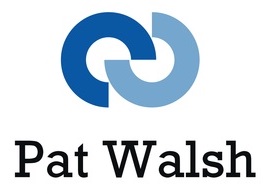In December 2016, I completed the online training course iThemes WordPress Developer Course.
This course was over two days and took the form of online live webinars, looking at what a WordPress site consists of and tips and techniques on various tools and methods to develop the site.
There were 8 different training sessions/webinars and these were:
- Session 1 – A Firm Foundation with wp-config.php
- Session 2 – Understanding and Deconstructing a WordPress Theme
- Session 3 – Communicating with the WordPress database to Retrieve Content
- Session 4 – Templates and Layouts on the Front End
- Session 5 – Extending WordPress with Code
- Session 6 – Extending WordPress with Plugins
- Session 7 – Customizing and Preparing the Site for the Client
- Session 8 – Q&A and Continuing the Conversation
So, as you can see from the Sessions above, the course took us through the backend (wp-config.php, WordPress database etc) the front end (templates and layouts) plus coding, customization and plugins.
In addition to the live training webinars, there was also a comprehensive hand out Word document and there was a hub page for the course, including a chat feature where all course attendees could chat with each other before/during/after the course.
My Top Ten Takeaways from the course were the following:
- The info on wp-config.php file (which had been a bit of a mystery up until then)
- WordPress stores all its data in 12 database tables (which we briefly went through)
- WordPress hierarchy information
- Widget Logic (this adds conditional logic to widget boxes to make the site more dynamic)
- Info on generatewp.com – a useful resource and ideal way to learning WordPress coding
- PODS – for managing custom post types and fields, plus extending existing information (e.g. users, media etc)
- Info on child themes (necessary if you want to make coding changes to themes you’ve bought)
- Custom code / custom plugin (this involved creating a custom plugin which you could add to a development site and test your changes out as you required)
- Checklists before launch of a WordPress site
- Also through the chat, there was useful discussion and information gained on the different options for developing a WordPress site locally (such as MAMP Pro, XAMPP, Desktop Server etc) and the different coding tools people use (such as Coda, Atom, Sublime Text and Text Wrangler)
Overall, I found the course very useful and would recommend it to anyone interested in knowing more about how their WordPress website works and how they can enhance it.
About my services: WordPress Websites / iOS App Testing / Android App Testing / Website Testing


